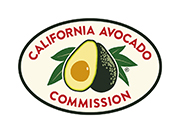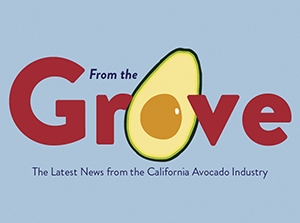Development of avocado rootstock varieties resistant to Phytophthora cinnamomi and salinity by the implementation of molecular breeding approaches for genomic selection
The overall goal of this program is to develop and provide elite rootstock material that is highly tolerant to Phytophthora root rot (PRR) and salinity. To address this goal we have divided the program into specific areas: 1) Screening for PRR tolerant rootstock varieties, 2) Screening for rootstock varieties with high tolerance to salinity and understanding PRR x salinity interactions to select for both PRR and salinity tolerant rootstocks, 3) Field testing, 4) Implementation of molecular-assisted breeding, and 5) outreach, education, and commercial release of elite rootstocks.
AVOCADO SAMPLE ESTABLISHMENT AND PRODUCTION COSTS AND PROFITABILITY ANALYSIS FOR VENTURA, SANTA BARBARA AND SAN LUIS OBISPO COUNTIES, CONVENTIONAL PRODUCTION PRACTICES
In this study, we provide up to date costs of establishment and production and profitability; benchmark indicators for evaluating the viability and sustainability of avocado production. This study is based on assumptions of orchard establishment and production practices that are considered typical in Ventura, Santa Barbara, and San Luis Obispo counties and is based on 20 acres orchard. Data regarding production practices, inputs and prices was collected from growers, the University of California Cooperative Extension (UCCE) farm advisor, agricultural institutions, and supply and equipment dealers.
AVOCADO SAMPLE ESTABLISHMENT AND PRODUCTION COSTS AND PROFITABILITY ANALYSIS SAN DIEGO AND RIVERSIDE COUNTIES, ORGANIC PRODUCTION PRACTICES
In this study, we provide up to date costs of establishment and production and profitability; benchmark indicators for evaluating the viability and sustainability of organic avocado production. This study is based on assumptions of organic avocado orchard establishment and production practices that are considered typical in San Diego and Riverside counties and is based on 10 acres orchard. Data regarding production practices, inputs and prices was collected from growers, the University of California Cooperative Extension (UCCE) farm advisor, agricultural institutions, and supply and equipment dealers.
AVOCADO SAMPLE ESTABLISHMENT AND PRODUCTION COSTS AND PROFITABILITY ANALYSIS FOR SAN DIEGO AND RIVERSIDE COUNTIES, CONVENTIONAL PRODUCTION PRACTICES
In this study, we provide up to date costs of establishment and production and profitability; benchmark indicators for evaluating the viability and sustainability of avocado production. This study is based on assumptions of orchard establishment and production practices that are considered typical in San Diego and Riverside counties and is based on a 20 acres orchard. Data regarding production practices, inputs and prices was collected from growers, the University of California Cooperative Extension (UCCE) farm advisor, agricultural institutions, and supply and equipment dealers.
Pest Management Guidelines for Agriculture: Avocado
These practices are recommended for a monitoring-based IPM program that enhances the use of IPM practices to reduce the risks of pesticides on the environment and human health. This year-round IPM program covers the major pests of avocados in California. Details on carrying out each practice, example monitoring forms, and information on additional pests can be found in the Avocado Pest Management Guidelines.
Biocontrol of Phytophthora Root Rot of Avocado 2004
Biocontrol may provide an effective, long-term, non-chemical, environmentally acceptable method of controlling Phytophthora root rot of avocado through a combination of cultural methods and application of selected microorganisms. This approach will probably be most effective as part of an integrated system of resistant rootstocks, sanitation and cultural methods.


